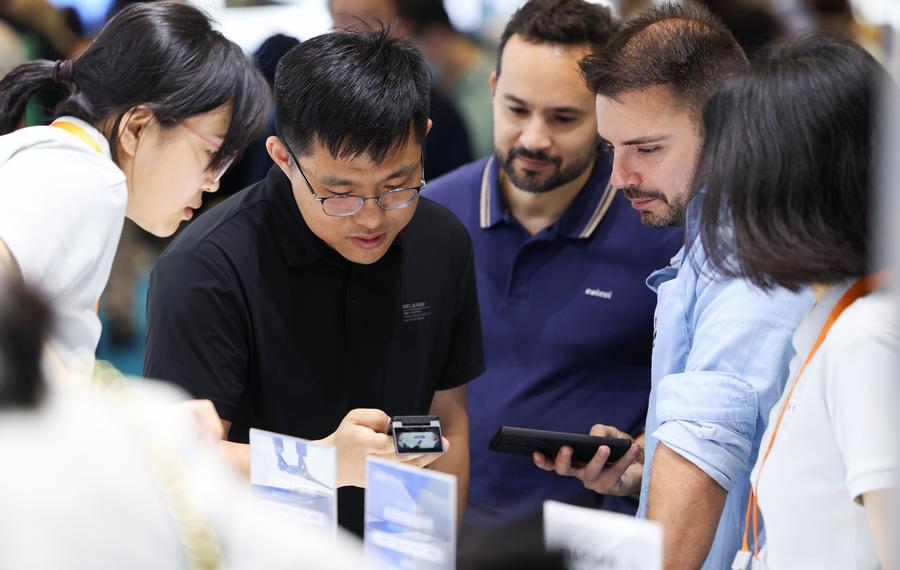
On one side are Chinese entrepreneurs with accented Mandarin; on the other, their business partners speak various languages from Southeast Asia, Central Asia and the Middle East.
How can they negotiate a deal without the presence of an interpreter?
As more Chinese firms go global thanks to robust Belt and Road Initiative (BRI) cooperation, the country's fast-growing AI technologies are responding to the need for more translators.
Among them is the AI translator developed by Chinese AI firm iFLYTEK. Riding on the company's intelligent speech prowess, this smartphone-sized device masters 85 languages spoken in over 200 countries and regions, as well as 202 dialects and accents in China.
"Many of our clients are bosses of small and micro firms, who can't always afford a professional interpreter on their overseas trips," said Sun Jingting, director of the AI translator at iFLYTEK. "In the past, it was their tech and sales staff that often had to improvise as interpreters."
Translating for Chinese businesspeople is no easy task today, as they are increasingly traveling to non-Anglophone countries participating in BRI.
"English remains widely used in our translation scenarios. But its proportion has dropped to 30 percent from 60 percent, not because of a decline in use, but because demand for other languages like Russian, Vietnamese, and Thai has grown," Sun said. "This is in line with the trend of Chinese companies increasing cooperation with BRI partner countries."
Powered by a domestically developed neural processing unit, the iFLYTEK AI translator is capable of quickly identifying the language input and understanding the meanings even without internet access. It is also equipped with a stronger noise cancellation function, as business conversations often occur in noisy environments, such as at an expo or in a factory, according to Sun.
China's total goods imports and exports reached 43.85 trillion yuan (about 6.1 trillion U.S. dollars) last year, a 5 percent increase year on year. For the first time, countries participating in the BRI accounted for more than 50 percent of China's total foreign trade value.
On the micro level, many Chinese traders are expanding their foreign language skills, often with the help of AI. In the city of Yiwu, known as the "world's supermarket," many local merchants have reportedly attended foreign language courses while also using AI apps to broker deals with visiting foreign buyers.
And it's not only businesspeople who are benefiting from multilingual AI. iFLYTEK said its auto-side voice interaction has covered 23 foreign languages, supporting overseas deliveries of over 100 models of Chinese-branded vehicles.
Will the ever-more versatile AI one day eliminate the need for human interpreters? Sun said this is not what the translator AI is designed for.
"AI has greatly improved its ability to offer accurate translation in the absence of professional translators," he said. "But business negotiations are also about conveying emotions and bridging cultures. This is where humans are not to be replaced."
















